Hyundai IONIQ 6 vs ZEEKR 7X - Differences and prices compared
Compare performance (650 HP vs 646 HP), boot space and price (37600 £ vs 45400 £ ) at a glance. Find out which car is the better choice for you – Hyundai IONIQ 6 or ZEEKR 7X?
Costs and Efficiency:
Price and efficiency are key factors when choosing a car – and this is often where the real differences emerge.
Hyundai IONIQ 6 has a noticeable advantage in terms of price – it starts at 37600 £ , while the ZEEKR 7X costs 45400 £ . That’s a price difference of around 7792 £.
In terms of energy consumption, the advantage goes to the Hyundai IONIQ 6: with 13.90 kWh per 100 km, it’s noticeable more efficient than the ZEEKR 7X with 17.70 kWh. That’s a difference of about 3.80 kWh.
As for electric range, the ZEEKR 7X performs barely noticeable better – achieving up to 615 km, about 1 km more than the Hyundai IONIQ 6.
Engine and Performance:
Power, torque and acceleration are the classic benchmarks for car enthusiasts – and here, some clear differences start to show.
When it comes to engine power, the Hyundai IONIQ 6 has a hardly perceptible edge – offering 650 HP compared to 646 HP. That’s roughly 4 HP more horsepower.
In acceleration from 0 to 100 km/h, the Hyundai IONIQ 6 is to a small extent quicker – completing the sprint in 3.20 s, while the ZEEKR 7X takes 3.80 s. That’s about 0.60 s faster.
In terms of top speed, the Hyundai IONIQ 6 performs a bit better – reaching 257 km/h, while the ZEEKR 7X tops out at 210 km/h. The difference is around 47 km/h.
There’s also a difference in torque: Hyundai IONIQ 6 pulls hardly perceptible stronger with 770 Nm compared to 710 Nm. That’s about 60 Nm difference.
Space and Everyday Use:
Beyond pure performance, interior space and usability matter most in daily life. This is where you see which car is more practical and versatile.
Both vehicles offer seating for 5 people.
In curb weight, Hyundai IONIQ 6 is distinct lighter – 1850 kg compared to 2395 kg. The difference is around 545 kg.
In terms of boot space, the ZEEKR 7X offers clearly perceptible more room – 539 L compared to 401 L. That’s a difference of about 138 L.
When it comes to payload, ZEEKR 7X slightly takes the win – 485 kg compared to 430 kg. That’s a difference of about 55 kg.
Who comes out on top?
Overall, the Hyundai IONIQ 6 shows itself to be leaves the rival little chance and secures the title of DriveDuel Champion.
It convinces with the more balanced overall package and proves to be the more versatile choice for everyday use.
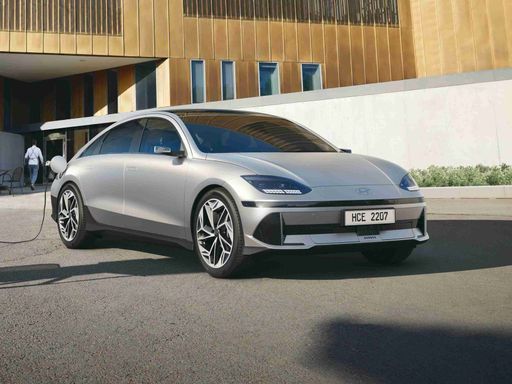
Hyundai IONIQ 6
Costs and Consumption
View detailed analysis
Engine and Performance
View detailed analysis
Dimensions and Body
View detailed analysis
Hyundai IONIQ 6
The Hyundai IONIQ 6 glides down the road with a poise that feels more runway model than commuter car, its sleek silhouette promising efficiency without trying too hard. Inside, a calm, minimalist cabin packed with clever, usable tech makes it a compelling choice for buyers who want electric motoring that's smart, stylish and quietly practical.
details
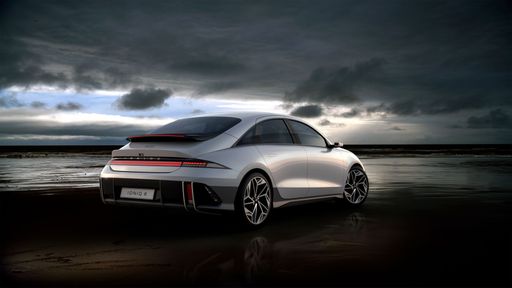
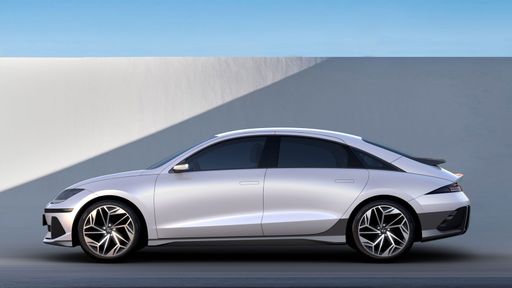
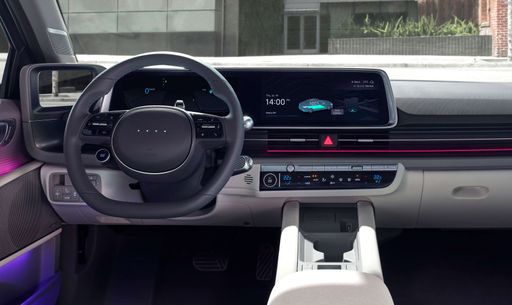
ZEEKR 7X
The ZEEKR 7X is a striking entry into the electric vehicle market, blending sleek aesthetics with a promise of cutting-edge technology. Its design exudes modern luxury while offering advanced features tailored for tech-savvy drivers. Positioned as a competitor in the premium electric segment, the 7X aims to deliver a dynamic driving experience alongside eco-friendly credentials.
details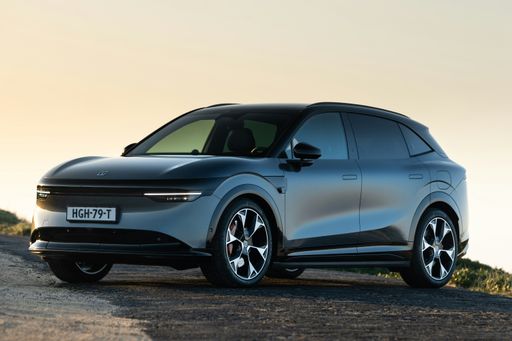
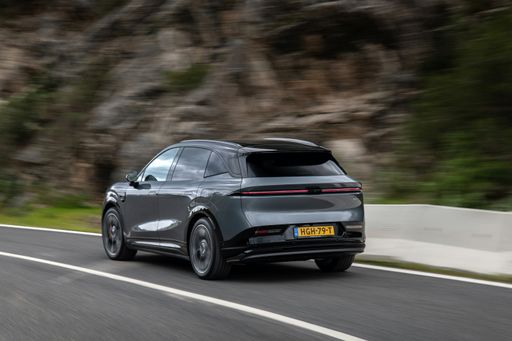
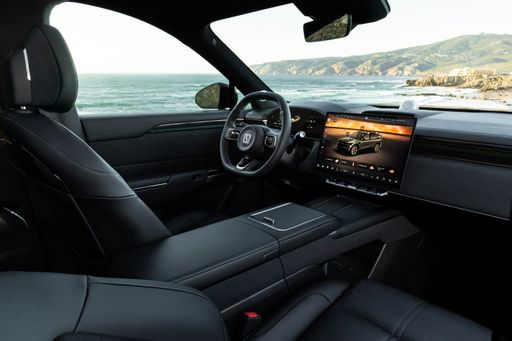
Costs and Consumption |
|
|---|---|
|
Price
37600 - 64300 £
|
Price
45400 - 54000 £
|
|
Consumption L/100km
-
|
Consumption L/100km
-
|
|
Consumption kWh/100km
13.9 - 15.1 kWh
|
Consumption kWh/100km
17.7 - 19.9 kWh
|
|
Electric Range
429 - 614 km
|
Electric Range
480 - 615 km
|
|
Battery Capacity
53 - 84 kWh
|
Battery Capacity
-
|
|
co2
0 g/km
|
co2
0 g/km
|
|
Fuel tank capacity
-
|
Fuel tank capacity
-
|
Dimensions and Body |
|
|---|---|
|
Body Type
Hatchback
|
Body Type
SUV
|
|
Seats
5
|
Seats
5
|
|
Doors
4
|
Doors
5
|
|
Curb weight
1850 - 2095 kg
|
Curb weight
2395 - 2535 kg
|
|
Trunk capacity
401 L
|
Trunk capacity
539 L
|
|
Length
4855 - 4935 mm
|
Length
4787 mm
|
|
Width
1880 - 1940 mm
|
Width
1930 mm
|
|
Height
1495 mm
|
Height
1650 mm
|
|
Max trunk capacity
-
|
Max trunk capacity
-
|
|
Payload
425 - 430 kg
|
Payload
455 - 485 kg
|
Engine and Performance |
|
|---|---|
|
Engine Type
Electric
|
Engine Type
Electric
|
|
Transmission
Automatic
|
Transmission
Automatic
|
|
Transmission Detail
Reduction Gearbox
|
Transmission Detail
Reduction Gearbox
|
|
Drive Type
Rear-Wheel Drive, All-Wheel Drive
|
Drive Type
Rear-Wheel Drive, All-Wheel Drive
|
|
Power HP
151 - 650 HP
|
Power HP
421 - 646 HP
|
|
Acceleration 0-100km/h
3.2 - 8.8 s
|
Acceleration 0-100km/h
3.8 - 6 s
|
|
Max Speed
185 - 257 km/h
|
Max Speed
210 km/h
|
|
Torque
350 - 770 Nm
|
Torque
440 - 710 Nm
|
|
Number of Cylinders
-
|
Number of Cylinders
-
|
|
Power kW
111 - 478 kW
|
Power kW
310 - 475 kW
|
|
Engine capacity
-
|
Engine capacity
-
|
General |
|
|---|---|
|
Model Year
2022 - 2025
|
Model Year
2025
|
|
CO2 Efficiency Class
A
|
CO2 Efficiency Class
A
|
|
Brand
Hyundai
|
Brand
ZEEKR
|
What drive types are available for the Hyundai IONIQ 6?
Available configurations include Rear-Wheel Drive or All-Wheel Drive.




